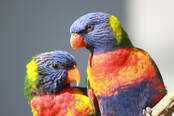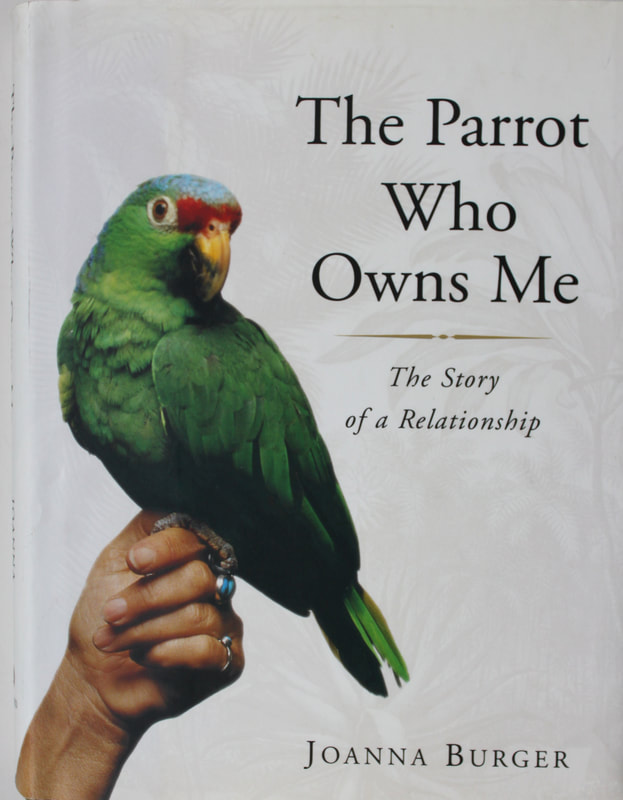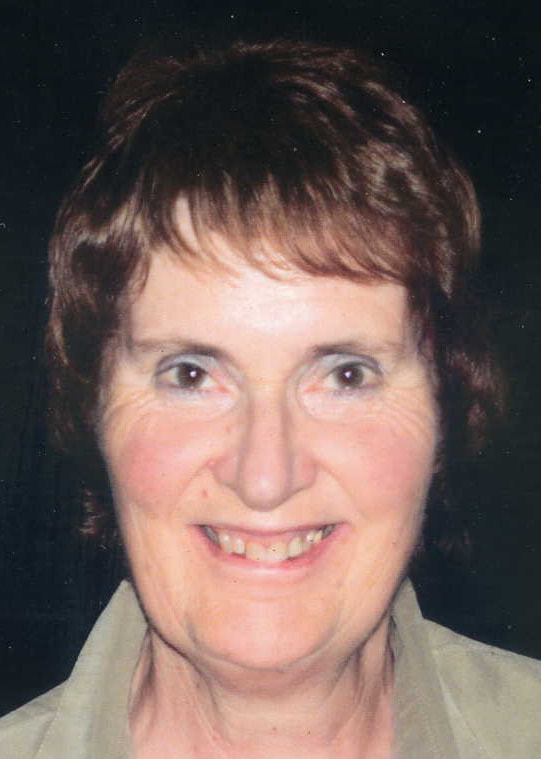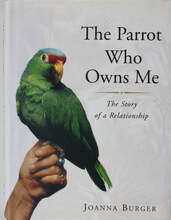BIRDS HAVE FEELINGS
Birds have Feelings
Of course, birds have feelings!
says Rosemary Low
Of course, birds have feelings!
says Rosemary Low
I have heard bird keepers ponder “I wonder whether birds are capable of emotions”. This amazes me! How can anyone who has lived closely with birds have any doubt that they can feel emotions as strong as our own.
In my book A Century of Parrots I wrote that animals “… are not the only creatures that have emotions, or can work out problems, etc. These attributes are not unique to the human race but egocentric man was, for centuries, either unaware or unwilling to admit this. By describing certain actions or behaviour as anthropomorphic, however, it allows some people to understand them better as they relate to animals. I found it satisfying to read in Joanna Burger’s book [The Parrot who Owns Me]:
“Our training drills into us [scientists] an aversion to anthropomorphic judgments. I once considered it the epitome of bad science to attribute human thought, feelings, and language ability to animals. But over the years I have changed my mind. I have come to regard it as at least equally benighted to automatically assume that animals lack these qualities. I find myself amazed, in fact, that anyone could doubt that the animals closest to us – dogs, cats, horses, parrots (especially parrots) – have emotional responses to the things around them, or that anyone could question the proposition that they form ideas about the situations they find themselves in or the people they meet. …No one who has lived with a parrot will for a second doubt that they have thoughts and feelings similar to ours.”
Dr Joanna Burger is a Distinguished Professor of Biology at Rutgers University in the USA. She has written several academic books on birds and bird behaviour. In her book she wrote of her Amazon Parrot that “the balance of power between us shifted. I stopped treating Tiko like a pet. I began to see him as an autonomous creature whose dependence on me only highlighted the need to really understand, deep down, that his life was as important as mine, his desires and inclinations equally valid.”
In my book A Century of Parrots I wrote that animals “… are not the only creatures that have emotions, or can work out problems, etc. These attributes are not unique to the human race but egocentric man was, for centuries, either unaware or unwilling to admit this. By describing certain actions or behaviour as anthropomorphic, however, it allows some people to understand them better as they relate to animals. I found it satisfying to read in Joanna Burger’s book [The Parrot who Owns Me]:
“Our training drills into us [scientists] an aversion to anthropomorphic judgments. I once considered it the epitome of bad science to attribute human thought, feelings, and language ability to animals. But over the years I have changed my mind. I have come to regard it as at least equally benighted to automatically assume that animals lack these qualities. I find myself amazed, in fact, that anyone could doubt that the animals closest to us – dogs, cats, horses, parrots (especially parrots) – have emotional responses to the things around them, or that anyone could question the proposition that they form ideas about the situations they find themselves in or the people they meet. …No one who has lived with a parrot will for a second doubt that they have thoughts and feelings similar to ours.”
Dr Joanna Burger is a Distinguished Professor of Biology at Rutgers University in the USA. She has written several academic books on birds and bird behaviour. In her book she wrote of her Amazon Parrot that “the balance of power between us shifted. I stopped treating Tiko like a pet. I began to see him as an autonomous creature whose dependence on me only highlighted the need to really understand, deep down, that his life was as important as mine, his desires and inclinations equally valid.”
This book is required reading for everyone who has a companion parrot.
The dislike of anthropomorphism was so strong during most of the 20th century that it did untold harm to the way people viewed birds and other animals. It often over-rode personal experience that clearly indicated that the emotions and behaviour of birds parallel those of humans in countless situations. Denying this fact was to reduce the ability of humans to understand the needs (especially emotional needs) of millions of companion birds that might otherwise have led much happier lives.
In my book Fabulous Feathers, Remarkable Birds I devoted a chapter (Grief and Devotion) to true stories of birds that have grieved the loss of a mate or human companion. It is hard for me to believe that there are bird keepers who do not understand this. If you are a doubter, please read this chapter!
In my book Fabulous Feathers, Remarkable Birds I devoted a chapter (Grief and Devotion) to true stories of birds that have grieved the loss of a mate or human companion. It is hard for me to believe that there are bird keepers who do not understand this. If you are a doubter, please read this chapter!
All photographs and text on this website are the copyright of |





